The choices available to writers who want to self publish are now so numerous that it’s no longer a question of “should I?” but rather “what options should I pursue?” However, with the ease of online publishing it is also possible to go to market with a book that is not quite polished for publication.
Instead a writer should consider all the services that a traditional publisher once bought to the table and choose in an ‘a la carte’ fashion those that they need for their publication. BiblioCrunch has a wide range of services on their marketplace so make the most of the expert knowledge available.
Let’s consider some of the key ingredients to creating great digital content – apart from the content itself!
Editing
This is something I feel strongly about – do not think this is a step that you should skip or short track.
When I’m presenting to authors I like to show them this from the Catherine, Caffeinated Blog where she states why an editor is needed.:

I suggest that you read this article and watch the demonstration. A copy edit and structural edit are strongly recommended.
Remember that you can’t edit your own work. No matter how many times you think you’ve checked it, read it, restructured or improved it you are too close to the work. I’ve certainly discovered this numerous times with my own writing and it is imperative that someone with fresh eyes is involved with your writing. And no, that doesn’t mean a family member or friend. What you want is someone to proof your work and someone to do a structural edit. You need someone who is not afraid to give you some tough feedback for the benefit of your work. A well edited title lifts the standards of self-publishing. Don’t cut corners on editing – it reflects poorly on you as the author and the whole industry of self-publishing.
Book or Ebook Cover
If you are self-publishing a printed book then obviously all the usual rules of cover design apply. You need to consider what is on the front cover, back cover and spine. However, with an ebook you only have the front cover and it is very important to get the design right.
Unlike bookstores, your potential readers won’t have the opportunity to pick up your book and browse through. In the online world your book is competing with everyone else who has something available and if you don’t grab his or her attention immediately then it’s likely you’ve lost a sale.
There are a few key things to consider with ebook cover design:
- A good exercise is to go onto any book retailing site and search in the genre of your book. You will find a list comes up – but can you see that some stand out on the results page in small size and some are not legible at all?
- Your cover needs to be eye-catching in a thumbnail size of 100 X 140 pixels and encourage people to click through to find out more.
- What needs to stand out? Unless you have a known author-brand then the most important factors are the book title and to show what the book is about, perhaps by design and illustration. Don’t make the design too complicated. Simplicity often works better than too many elements.
- Remember you have no back cover and blurb – that’s in the metadata.
- Yes, it is possible to do your cover design yourself but using someone experienced in book design will ensure a professional result.
Metadata
When I put the word ‘Metadata’ up on the screen when teaching I usually quickly follow it with this slide:

Let’s face it – metadata sounds a bit technical and writers initially feel it doesn’t have much relevance to them. But it does. Metadata is terribly important and authors need to know what it is and learn how to exploit it fully.
Metadata is usually described as ‘data about data’. But let’s put it another way:
Metadata is all the information about your book that allows it to be found and sold online.
This quote from Michael Bhaskar, Digital Publishing Director, Profile Books explains it perfectly:
Metadata influences search, it influences territoriality and categorisation – metadata is the advert, the sales pitch, the sell in and the advance promotion; metadata is the random book left on the table, the fervent recommendation of a friend, the arresting blurb, the good review, serving the random browser and the determined buyer alike.
Basic or core metadata includes:
- Book title
- Publisher
- Author/s
- ISBN
- Book Description
- Categories
- Book cover
- Price
- Page extent (for printed books) and format
- Language and rights
- Category (ie Fiction/Commercial Fiction)
It can also include:
- Keywords
- Tags
- Reviews
- Author biography
- Book blurb
- Excerpts
- Prizes
It’s ideal to fully utilise all fields of the book information that are made available to you. When you are getting your title edited you may like to ask your editor to also finesse your book description. Always check the categories or keywords that books you believe your competition are using and keep testing and changing to see if these affect sales. It may be possible to change your book category on retailer website to a less competitive one to see if this increases the sales ranking.
Remember that the book cover and book description are two key factors influencing discovery and purchase of your book online. It’s all about maximising every chance
ISBN
When I talk to authors about digital publishing I often get asked “Is it really necessary to buy my own ISBN?” I can understand that writers are trying to save costs and many retailers offer free or cut price ISBN’s.
BiblioCrunch recently ran a very important piece by Laura Dawson that explains just why this is so important. They also followed up with Should You Buy ISBN’s. Just remember – if you don’t purchase your own ISBN you may not be listed as the publisher of your own work! Laura Dawson said in her post – your book result will be prioritised in search engines if you have an ISBN. Please. Buy your own.
Marketing and Promotion
It would be nice if there were some sure-fire way to guarantee success, but sometimes it is partly luck or good timing, partly hard work and partly great content that people want to read.
What will help your chances of success are all the factors mentioned above – a good title and cover, a great book description and metadata, ensuring your book has an ISBN to bring it higher up search results.
What IS important is to have an online destination for people to find you whether that is a website or a blog with a static front page. A lot of writers don’t have the time to blog while others find it a pleasing interlude from their work. Whatever path you choose you need to have somewhere for people to find you.
There are a number of social media platforms that are useful in interacting with other writers and readers. Over time you can grow followers organically who may be interested in your book, but remember not to only mention your book or reviews. That just gets boring so make sure you have conversations because interaction is what is important. If you do want to investigate just one or two forms of social media I would start with a Facebook Author Page and then move onto Twitter.
There are debates about how many sales may actually come via social media but what is known is that it is useful for spreading knowledge about your work. Don’t feel that you need to dive into all possible options. It’s best to try one and feel comfortable and familiar before you move onto another. Guest blogging, commenting on other blogs, forums and social media are also good ways of interacting online.
Marketing your book can take a lot of time and effort but it IS a necessary part of publishing. Ideally your marketing should start before your book is published. Built interest, anticipation and a bond with others who will share your excitement on the day it is available.
Creating great content isn’t just what is inside the book. It is also professionally producing your book and knowing all the ingredients to maximize your chance of success. Enjoy the journey!
=================
About Anna Maguire

Anna Maguire has worked in publishing and digital content for 25 years. She is a former head of production and interactive at Random House Australia and is a passionate advocate for digital developments in the book industry and the emerging Australian ebook and app market. Anna teaches authors about their digital publishing and crowdfunding options and trains publishing students. Anna has spoken at the Sydney Writers’ Festival, Ubud Writers and Readers Festival and is a graduate of the Yale Publishing Course. In October 2012 Anna published Crowdfund it! – her first ebook with digital-first publisher Editia. Anna blogs about digital publishing at www.digireado.com.au and crowdfunding at www.crowdfundit.com.au.

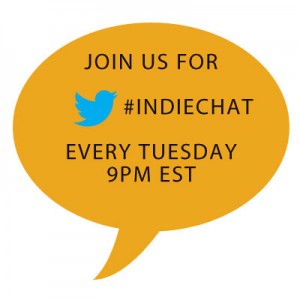
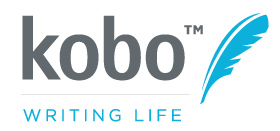
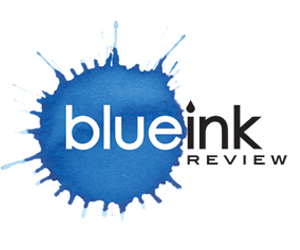
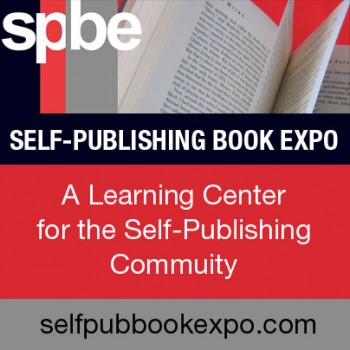
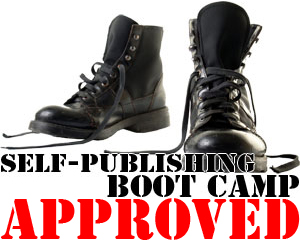
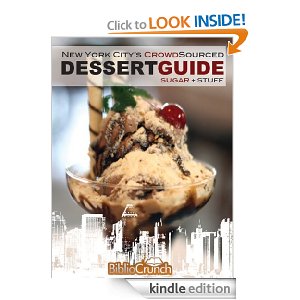
Follow Us!